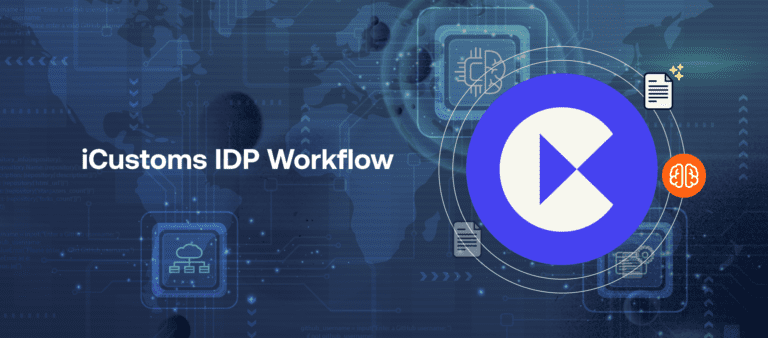Fast & Accurate ENS GB & EU ICS2 Solutions Built for You.
Automate CN22 and CN23 Customs Declarations with iCustoms
-
Freya Jane
- Director of Customer's Success
International trading rules and regulations can be very stressful for importers and exporters, particularly when it comes to customs declarations, i.e., CN22 and CN23. These forms are required when shipments are crossing borders to ensure they align with customs rules and pay the accurate amount of taxes and duties. Manual customs declarations consume a lot of time and pose a number of error risks, which may lead to shipment delays or penalties.
This becomes especially problematic as the volume of international trade rises. Several studies demonstrate how, over time, international trade has gradually increased.
For instance, a survey conducted by the OECD shows that,
“Imports and exports have increased by 1.3% and 1.6%, respectively, in quarter 4 of 2023 compared to the previous quarter.”
This growing volume of international trade further aggravates the difficulties of manual customs declarations and causes more bottlenecks. This can only be overcome by replacing the conventional system with a modern, artificial intelligent customs declaration system.
Before we get started with customs automation, we need to understand what CN22 and CN23 customs declarations are and how they differ from one another.
What are CN22 or CN23 customs declarations?
CN22 and CN23 are required customs forms for international shipping. These documents include the following information about the shipment:
- The goods type
- Goods value
- Carrier information
- Receiver information
- Destination country
Customs authorities use these forms to keep track of all the goods entering and exiting the country to ensure environmental protection, border security, and proper taxation. Furthermore, these forms also ensure that customs duties and taxes are paid for the goods you are shipping.
In case of wrong or missing information on CN22 and CN23 forms, you may end up with fines, penalties or even shipment seizure.
Difference between CN22 and CN23
It can be overwhelming to decide between CN22 and CN23, particularly for a novice trader. However, the difference between both is very simple; it depends on the weight and value of the parcel.
Here’s how you can decide which form to choose for your shipment:
CN22
It is required if your parcel is under 2 kg and is worth up to £270.
CN23
It is required if your parcel weighs more than 2 kg and is worth more than £270.
When do you use CN22 and CN23 customs declarations?
You need to use CN22 and CN23 customs declarations each time you ship a parcel outside the European Union border to a country not subject to free trade agreements. When sending and receiving goods within EU states, CN22 and CN23 customs forms are not required.
However, you need these forms in the following cases:
When shipping goods to an EU nation’s overseas region, such as Melilla and Ceuta, that is a member of the EU but not the Customs Union.
When shipping goods to EU countries’ overseas regions, such as the Canary Islands, that are members of the Customs Union and EU but have different VAT regulations.
Information required for CN22 and CN23 customs declaration forms
It is essential to fill out the following mandatory fields in the customs forms:
Name and address of the sender
Type and accurate description of goods
Weight, value, and quantity of each good
Total weight, value, and quantity
Country of origin
VAT registered number of EORI
HS tariff number
Sender’s signature
Name and address of the recipient
Automating CN22 and CN23 customs declaration

Completing CN22 and CN23 manually is very tedious and might be mistake-prone, resulting in fines, delays, or even seized shipments. To tackle these issues, iCustoms has developed AI-driven Customs Declaration Software (CDS) that automates these processes.
Want to learn more about Customs Declaration Software? Click here!
Here’s how iCustoms’ CDS automates CN22 and CN23 declarations
1. Integration of data
Our CDS captures real-time data and relevant information, such as product descriptions, sender and recipient names and addresses, weights, and quantities, and directly routes it to customs documents. It enhances productivity and reduces manual work, particularly when you have bulk shipments.
2. Selecting the correct form to utilise
The CDS automatically calculates if a CN22 or CN23 form is needed based on the pre-populated shipment weight and value from your integrated platform.
3. Automated population: Completing the form electronically
The relevant fields on the related CN22 or CN23 form inside your CDS are automatically filled in with the pre-populated data from your integrated systems. This comprises:
Information about the sender and recipient (names, phone numbers, addresses)
Descriptions of the goods
Total numbers of goods being transportedWeight of the shipment
Value of the shipment
4. Classifying your goods with HS code lookup
As per the WCO,
“More than 98% of the goods are classified according to the harmonised system in international trade.”
iCustoms’ sophisticated tool, i.e., iClassification, automatically provides the correct HS code for the goods, eliminating the hassle of manually finding the accurate code.
5. Before sending, review and submit the final checks
Even though automation handles the majority of the work, iCustoms involves a human-in-the-loop factor to carefully check the pre-filled data before electronically submitting the CN22 or CN23. This ensures accuracy and removes any discrepancies.
Benefits of automated CN22 and CN23 customs declarations
Enhanced efficiency: Integrate CDS with your current shipping software to automate data entry. In the customs forms, data such as values, item descriptions, and sender/receiver addresses can be automatically filled in.
Decreased errors: By utilising automation, you may do away with human data entering mistakes. This guarantees precise and consistent data for your customs declarations.
Faster processing: Customs officials frequently process electronically submitted declarations through CDS more quickly than they do paper forms.
Compliance assurance: By ensuring that your declarations adhere to the most recent rules, CDS can significantly lower the possibility of encountering customs-related problems.
Simplify customs, maximise efficiency. Start now!
Takeaways
Simplify your international shipping by automating CN22 and CN23 declarations with CDS, and reduce the chance of mistakes and delays. You can concentrate on expanding your business while letting our CDS handle quick and legal customs clearance for your global shipments.
By integrating iCustoms’ CDS CN22 and CN23 customs declarations, you can seamlessly manage multiple shipments, saving you resources and time. Contact us right away to learn more about how our CDS aligns with your particular shipping needs.

Eliminate errors & ensure accurate customs declarations with the iCustoms Process Automation Solution!
FAQs
Which countries need the CN22 form?
All the goods shipping outside the UK from Scotland, England, and Wales require a CN22 customs declaration form.
What is the difference between CN22A and CN22B?
CN22A is required if you’re shipping goods via International Tracking and Signature services, while CN22B is required if you are sending items with International Economy and International Standard service.
What happens if you don’t declare customs in the UK?
If you don’t declare at UK customs, you may be subject to fines, penalties, goods holding, or even imprisonment in case you get caught smuggling goods.
